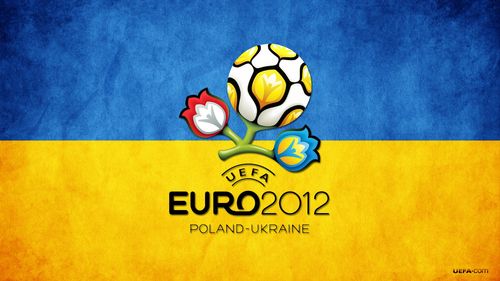TheEuropeanChampionship:ACelebrationofFootballintheHeartofEurope
Introduction
The European Championship, often referred to as the Euros, is a prestigious football tournament that captures the passion and excitement of the beautiful game. Held every four years, this competition brings together the finest national teams from across Europe to compete for the coveted title of continental champions. In this article, we will delve into the history, format, and significance of the Euros, exploring how this event has become one of the mostwatched sporting spectacles in the world.
Historical Background
The inception of the European Championship dates back to 1958 when the Union of European Football Associations (UEFA) organized the first edition of the tournament. Initially known as the UEFA European Nations' Cup, the competition was designed to mirror the FIFA World Cup on a continental scale. The inaugural tournament was won by the Soviet Union, who triumphed over Yugoslavia in the final.
Over the years, the Euros have undergone several changes in format and structure. The most significant of these was the expansion of the tournament from eight teams to 16 in 1996, and then to 24 teams in 2016. This growth has allowed more countries to participate and has increased the global appeal of the competition.
Tournament Format
The European Championship follows a rigorous qualification process, with national teams vying for a spot in the final tournament. The qualification phase typically begins two years before the main event and involves a series of group matches and playoffs. The top teams from each group, along with the winners of the playoffs, advance to the final tournament.

Once the final tournament commences, the participating teams are divided into six groups of four. The group stage is a roundrobin format, with each team playing three matches. The top two teams from each group, as well as the four best thirdplaced teams, progress to the knockout stage. This elimination phase consists of the round of 16, quarterfinals, semifinals, and the final, where the winner is crowned.
Significance and Impact
The European Championship holds immense significance for both players and fans alike. For the players, it represents an opportunity to showcase their skills on the international stage and to bring glory to their nation. For fans, it is a time to rally behind their national team and experience the highs and lows of tournament football.
Moreover, the Euros have a profound impact on the host countries, as they benefit from increased tourism, infrastructure development, and global exposure. The tournament also serves as a platform for cultural exchange, as fans from different countries come together to celebrate their shared love for football.
Memorable Moments
Throughout its history, the European Championship has produced countless memorable moments that have become etched in the annals of football history. From the "Miracle of Bern" in 1954, where West Germany stunned the heavily favored Hungarian team, to the "Golden Goal" in 1996, which saw Germany defeat the Czech Republic in extra time, the Euros have consistently delivered drama and excitement.
One of the most iconic moments in the tournament's history occurred in 2004 when underdog Greece defied all odds to win the championship. Led by manager Otto Rehhagel, the Greek team executed a disciplined and defensiveminded approach, which ultimately led them to victory over Portugal in the final.
Conclusion
The European Championship stands as a testament to the enduring appeal of football and the unity it fosters among nations. As the tournament continues to evolve and grow, it remains a cherished event for fans and players alike. The Euros not only showcase the best of European football but also serve as a celebration of the sport's ability to bring people together, transcending borders and cultures. As we look forward to future editions of the tournament, we can be sure that the Euros will continue to captivate audiences and create lasting memories for generations to come.
体育资讯
MORE>- 搜索
- 最近发表
-
- 演员张丰毅,我这辈子最正确决定,就是和前妻吕丽萍各奔东西
- 中国举重队满额出征世锦赛
- 亚冠情报:中央海岸队史9战日本球队7次落败,横滨远征澳大利亚飞行10小时
- 聚合智慧 | 升华财富 产业智库服务平台
- 体育课“天天见”,要开足更要开好
- 四川:大课间活动评比释放学校体育发展活力
- 中央广播电视总台蛇年春晚吉祥物国产最新地址24小时失效“巳升升”亮相
- 2024中国体育文化博览会、中国体育旅游博览会在苏州举办
- 混合团体世界杯国乒轻取德国队
- 对标世界级赛事场馆,济南黄河体育中心以何担当?
- 体育是读懂中国的一个好窗口
- 跨省也能给家人用 快来学习“医保《c到怀孕为止》动漫钱包”如何操作
- 体育课“天天见”,要开足更要开好
- 多国专家与一线71049.соm查询王中王人道工作者共论“中国人道传统与国际人道理念”
- 什么是外场手?它与体育产业有何关联?
- 勇士队
- 培养高素质体育人才,推动乡村振兴
- 深圳,体育赛事大爆发!
- 体育教育专家吴键谈体育 家长应“放手” 社会要多支持
- 2024中国体育文化博览会、中国体育旅游博览会在苏州举办
- 标签列表
-
- 2024欧洲杯百度百科 (15)
- 2024年欧洲杯足球场 (13)
- 2024欧洲杯比赛时间 (28)
- 为什么欧洲杯看不了 (11)
- 欧洲杯一共多少球队 (15)
- 欧洲杯在哪个国家举行2024 (12)
- 欧洲杯多少支球队参加 (11)
- 欧洲杯为什么没有中国 (14)
- 欧洲杯共多少场比赛 (10)
- 欧洲杯为什么没有直播 (12)
- 欧洲杯有多少只球队参加 (11)
- 2024年欧洲杯预选赛 (14)
- 欧洲杯2024在哪个国家 (11)
- 在哪里可以看欧洲杯预选赛 (13)
- 欧洲杯每场比赛场地 (13)
- 欧洲杯预选赛最新战况 (13)
- 欧洲杯 (16)
- 2024欧洲杯全部赛程 (12)
- 欧洲杯赛程 (11)
- 直播带货公司 (11)
- 直播网站 (12)
- 直播:百度世界2023 (11)
- 直播吧 (20)
- 直播软件 (13)
- 直播代运营公司 (13)



